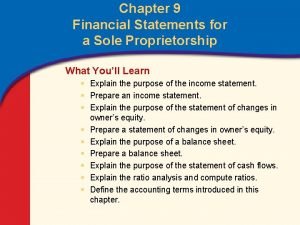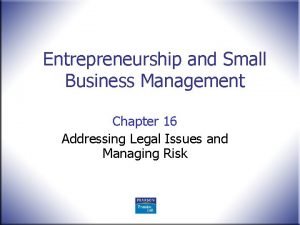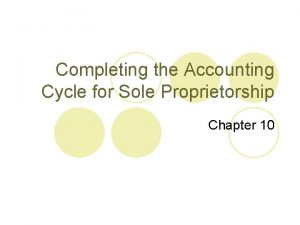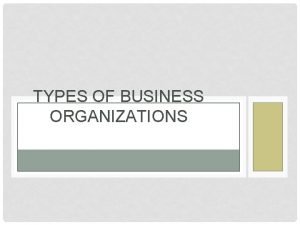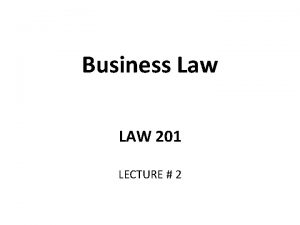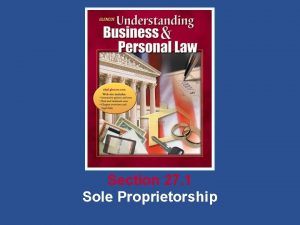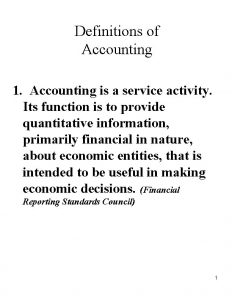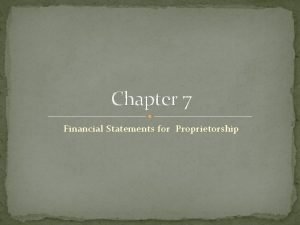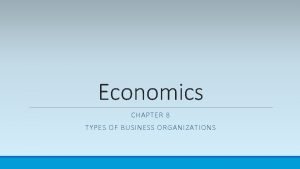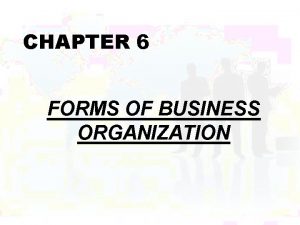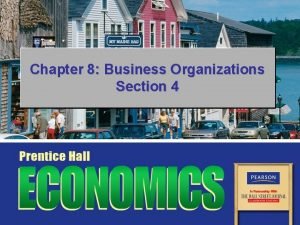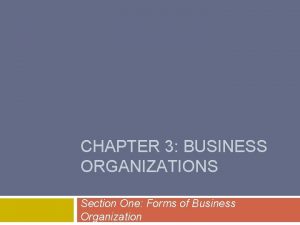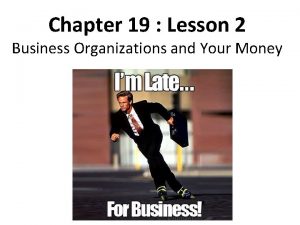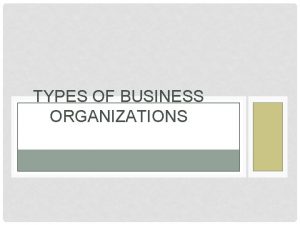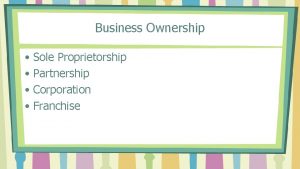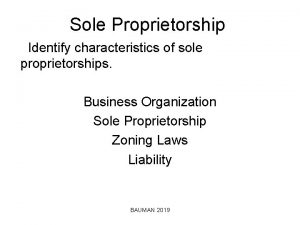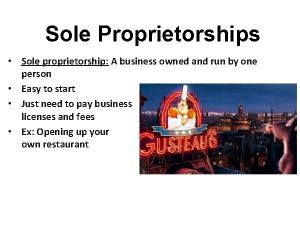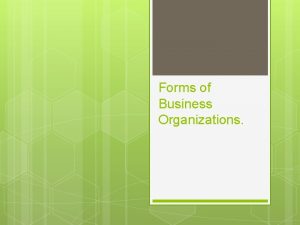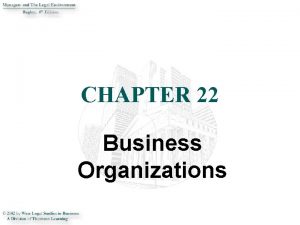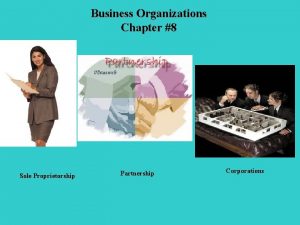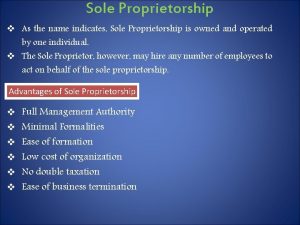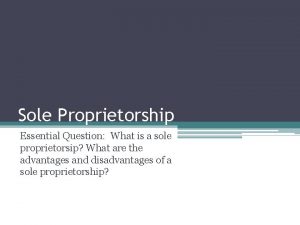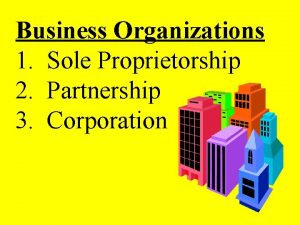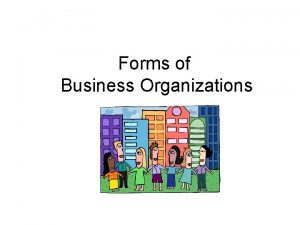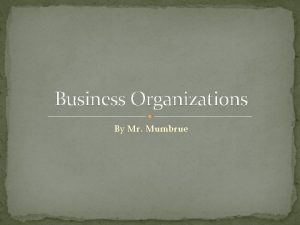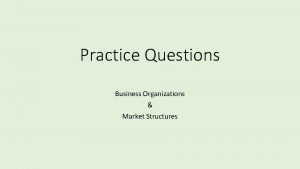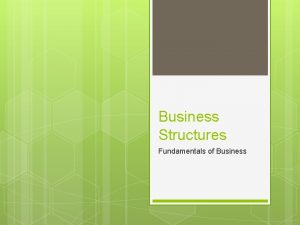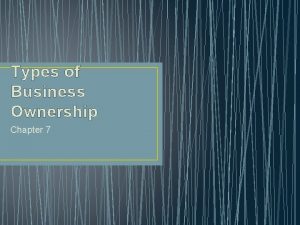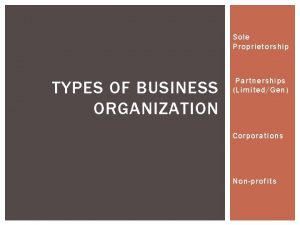Business Organizations Chapter 8 Types Sole Proprietorship A

Business Organizations Chapter 8

Types

Sole Proprietorship • A business owned and run by one person. • Forming a Proprietorship only requires licenses and fees. • You are ready for business as soon as operations are setup. • Can be run almost anywhere.

Sole Proprietorships • Advantages –Easy to start up –Easy to manage –Owner enjoys all profit w/o sharing it with other owners

Sole Proprietorships • Advantages (Cont. ) –Psychological satisfaction of being one’s own boss –Easy to leave the business

Sole Proprietorships • Disadvantages –Owner has unlimited liability –Difficulty in raising financial capital to start business –Small size and efficiency problems

Sole Proprietorships • Disadvantages (Cont. ) –Owner often has limited managerial experience –Difficulty in attracting qualified employees

Sole Proprietorships • Disadvantages (Cont. ) –Limited life of business • If owner quits, dies, or sells the business

Partnership • A business jointly owned by two or more persons. Types of Partnerships General Partnership • All partners are responsible for the management and financial obligations of the business • -

Partnerships Limited Partnership • At least one partner is not active in the daily running of the business.

Partnerships • • Formation Easy like a proprietorship Articles of partnership States how profit (or loss) will be divided.

Partnership • Advantages – Easy to establish – Easy to manage – Lack of special taxes – Easier to attract capital than a proprietorship

Partnership • Advantages –Since they are bigger they are more efficient –Easier to attract top talent into their organization

Partnership • Disadvantages –Each partner is fully responsible for the acts of all partners –Has limited life

Partnership • Disadvantages (Cont. ) – Potential conflict between the partners – Financial problems may cause both the business and partners to file for bankruptcy

Corporation • A form of business organization recognized by law as a separate legal entity having all the rights of an individual.

What does this mean? • A corporation can buy or sell property, enter into legal contracts, and may be sued. • The stockholders are the owners of a corporation.

Formation • Very formal and legal arrangement • Must request permission from the state or federal government.


Corporation • Advantages –Easy to raise capital (usually done by issuing bonds) –Hire professional managers to run the firm

Corporation • Advantages (cont. ) – Provides limited liability for its owners (stockholders) – Unlimited life (corporation goes on even as ownership changes)

Corporation • Advantages (cont. ) –Easy to transfer ownership (simply sells stock)

Corporation • Disadvantages –Difficult and expensive to obtain a charter –Shareholders have little input in how the business is run

Corporation • Disadvantages (cont. ) –Double taxation of profits • dividends are taxed as corporate profit and as personal income for the shareholder

Corporation • Disadvantages (cont. ) –They are subject to more governmental control than other forms of business

• Stock- share of ownership in a corporation that entitles the buyer to a certain part of future profits of a corporation. • Dividend- profits paid to its stockholders

• Franchise- A contract in which a franchiser sells to another business the right to use its name and sell its products, they train you etc. • The person or business buying these rights, called the franchisee, pays a fee that may include a percentage of all money taken in.
- Slides: 27
